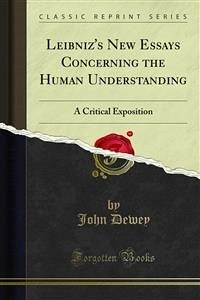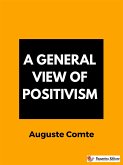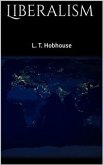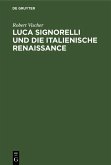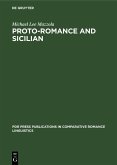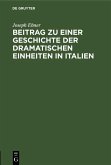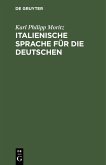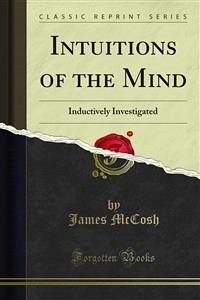7,85 €
inkl. MwSt.
Sofort per Download lieferbar

0 °P sammeln
- Format: PDF
- Merkliste
- Auf die Merkliste
- Bewerten Bewerten
- Teilen
- Produkt teilen
- Produkterinnerung
- Produkterinnerung

Bitte loggen Sie sich zunächst in Ihr Kundenkonto ein oder registrieren Sie sich bei
bücher.de, um das eBook-Abo tolino select nutzen zu können.
Hier können Sie sich einloggen
Hier können Sie sich einloggen
Sie sind bereits eingeloggt. Klicken Sie auf 2. tolino select Abo, um fortzufahren.

Bitte loggen Sie sich zunächst in Ihr Kundenkonto ein oder registrieren Sie sich bei bücher.de, um das eBook-Abo tolino select nutzen zu können.
- Geräte: PC
- ohne Kopierschutz
- eBook Hilfe
- Größe: 7.84MB
Andere Kunden interessierten sich auch für
![A General View of Positivism (eBook, ePUB) A General View of Positivism (eBook, ePUB)]() Auguste ComteA General View of Positivism (eBook, ePUB)0,99 €
Auguste ComteA General View of Positivism (eBook, ePUB)0,99 €![Liberalism (eBook, ePUB) Liberalism (eBook, ePUB)]() L. T. HobhouseLiberalism (eBook, ePUB)2,99 €
L. T. HobhouseLiberalism (eBook, ePUB)2,99 €![Luca Signorelli und die Italienische Renaissance (eBook, PDF) Luca Signorelli und die Italienische Renaissance (eBook, PDF)]() Robert VischerLuca Signorelli und die Italienische Renaissance (eBook, PDF)119,95 €
Robert VischerLuca Signorelli und die Italienische Renaissance (eBook, PDF)119,95 €![Proto-Romance and Sicilian (eBook, PDF) Proto-Romance and Sicilian (eBook, PDF)]() Michael Lee MazzolaProto-Romance and Sicilian (eBook, PDF)77,95 €
Michael Lee MazzolaProto-Romance and Sicilian (eBook, PDF)77,95 €![Beitrag zu einer Geschichte der dramatischen Einheiten in Italien (eBook, PDF) Beitrag zu einer Geschichte der dramatischen Einheiten in Italien (eBook, PDF)]() Joseph EbnerBeitrag zu einer Geschichte der dramatischen Einheiten in Italien (eBook, PDF)109,95 €
Joseph EbnerBeitrag zu einer Geschichte der dramatischen Einheiten in Italien (eBook, PDF)109,95 €![Italienische Sprache für die Deutschen (eBook, PDF) Italienische Sprache für die Deutschen (eBook, PDF)]() Karl Philipp MoritzItalienische Sprache für die Deutschen (eBook, PDF)109,95 €
Karl Philipp MoritzItalienische Sprache für die Deutschen (eBook, PDF)109,95 €![Intuitions of the Mind (eBook, PDF) Intuitions of the Mind (eBook, PDF)]() James McCoshIntuitions of the Mind (eBook, PDF)9,85 €
James McCoshIntuitions of the Mind (eBook, PDF)9,85 €-
-
-
Produktdetails
- Verlag: Forgotten Books
- Erscheinungstermin: 21. Oktober 2017
- Englisch
- ISBN-13: 9780243687558
- Artikelnr.: 59063591
Leibniz's New Essays on Human UnderstandingJohn Dewey "HE who knows me only by my writings does not know me," said Leibniz. These words-true, indeed, of every writer, but true of Leibniz in a way which gives a peculiar interest and charm to his life-must be our excuse for prefacing what is to be said of his "New Essays concerning the Human Understanding" with a brief biographical sketch. Gottfried Wilhelm Leibniz was born in Leipzig June 21, 1646. His father, who died when Leibniz was only six years old, was a professor in the university and a notary of considerable practice. From him the future philosopher seems to have derived his extraordinary industry and love of detail. Such accounts as we have of him show no traces of the wonderful intellectual genius of his son, but only a diligent, plodding, faithful, and religious man, a thoroughly conscientious husband, jurist, and professor. Nor in the lines of physical heredity can we account for the unique career of Leibniz by his mother's endowments. The fact, however, that she was patient in all trial, living in peace with her neighbors, anxious for unity and concord with all people, even with those not well disposed to her, throws great light upon the fundamental trait of Leibniz's ethical nature. As in so many cases, it is the inherited moral characteristics which form the basis of the intellectual nature. The love of unity which was a moral trait in Leibniz's mother became in him the hunger for a harmonious and unified mental world the father's devotion to detail showed itself as the desire for knowledge as minute and comprehensive as it was inter-related. Left without his father, he was by the advice of a discerning friend allowed free access to the library. Leibniz never ceased to count this one of the greatest fortunes of his life. Writing in after years to a friend, he says:- "When I lost my father, and was left without any direction in my studies, I had the luck to get at books in all languages, of all religions, upon all sciences, and to read them without any regular order, just as my own impulse led me. From this I obtained the great advantage that I was freed from ordinary prejudices, and introduced to many things of which I should otherwise never have thought.
